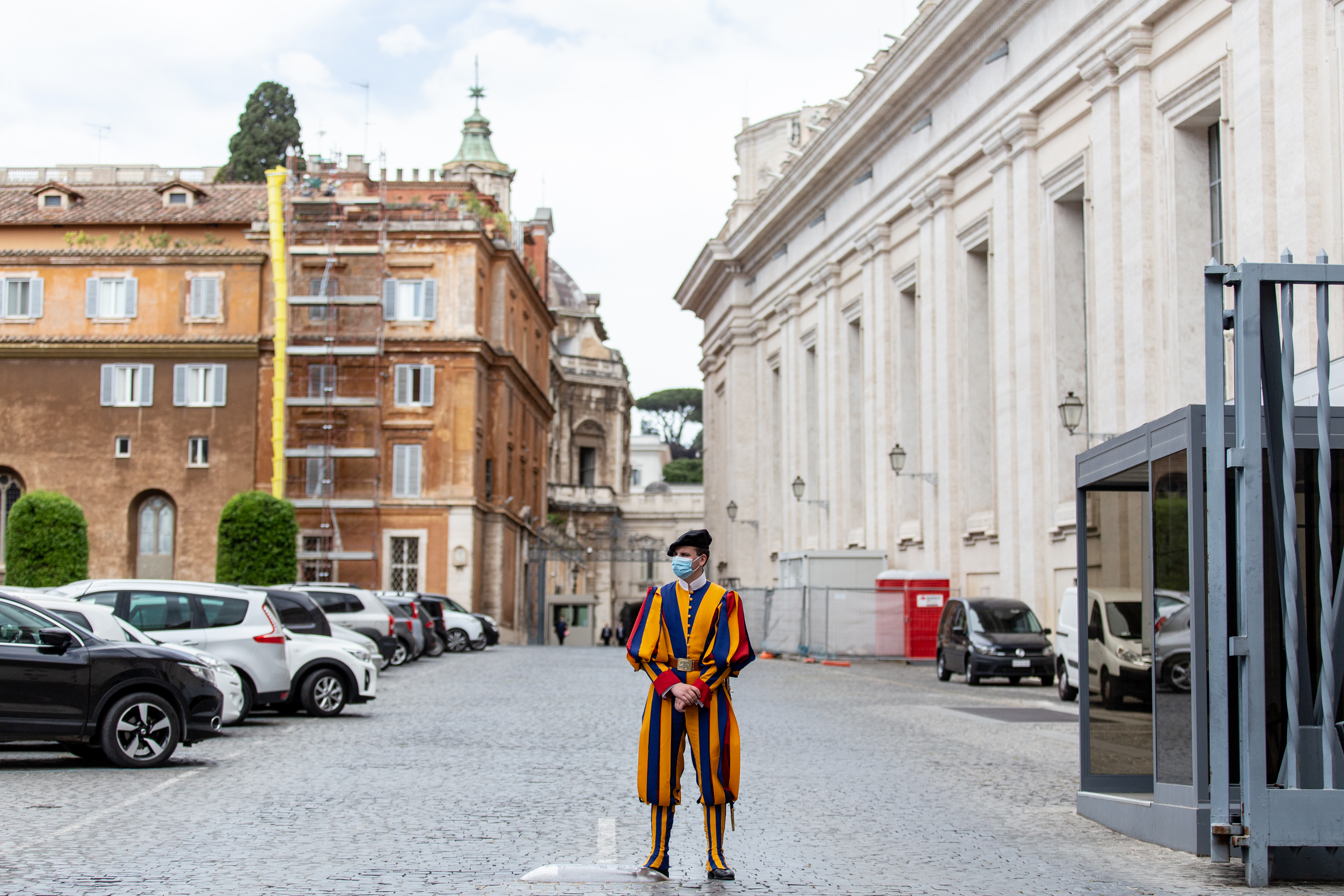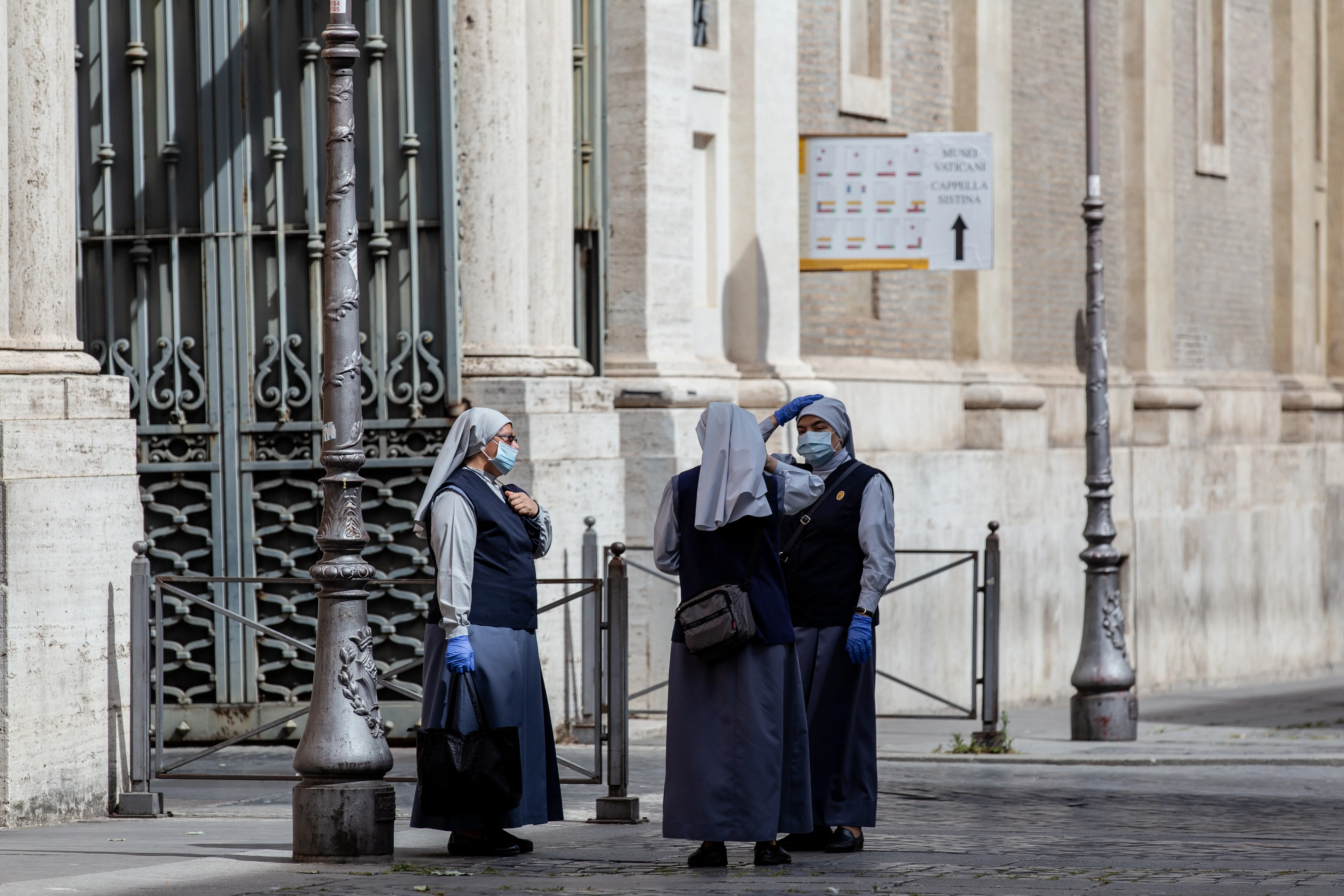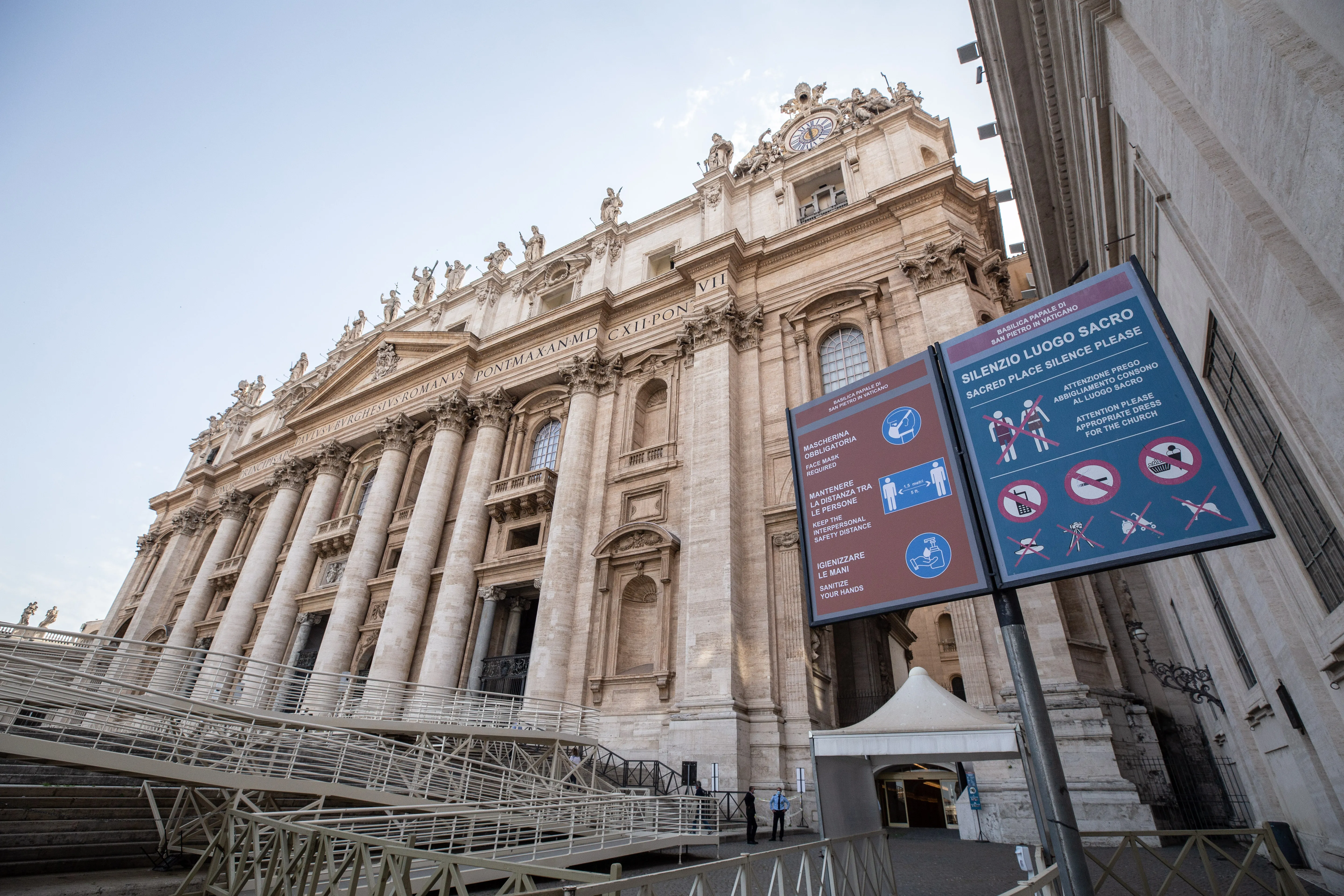
Vatican City, Sep 20, 2021 / 08:15 am (CNA).
The Vatican will require all visitors and personnel to show a COVID-19 pass proving they have been vaccinated, have recovered from the coronavirus, or have tested negative for the disease in order to enter the city state beginning Oct. 1.
To enter Vatican territory, tourists and other visitors, employees, and officials will be required to show a digital or paper Covid Certificate issued by the Vatican or another country, according to an ordinance published Sept. 20.

The president of Vatican City State, Cardinal Giuseppe Bertello, issued the ordinance at the request of Pope Francis, who asked “to take all appropriate measures to prevent, control and combat the ongoing public health emergency in the Vatican City State.”
Under the new order, Catholics attending liturgical celebrations at the Vatican will be an exception to the vaccine rule. People will be allowed to access a liturgy “for the time strictly necessary for the conduct of the rite,” while also following distancing and masking rules.
Italy’s vaccine passport, called the “Green Pass,” requires proof of vaccination against COVID-19, proof of recovery from COVID-19 within the previous six months, or proof of a recent negative COVID-19 test.

On Sept. 17, the Italian government approved an expansion to the Green Pass, making it a requirement for all private and public workplaces beginning Oct. 15.
Employees who do not have the pass could be suspended without pay or be forced to pay a fine of up to roughly $1,800.
Since Aug. 1, Italy has required the vaccine pass to enter certain indoor venues, such as restaurants and museums, and in September the pass also became necessary for travel within the country. The vaccine pass was already required for certain workplaces, such as hospitals and schools.
The ordinance mandating COVID-19 vaccination for visitors and employees of Vatican City State was signed Sept. 18, the day after Italy’s government expanded its vaccination mandate to the public and private sectors.
Vatican gendarmes will be responsible for checking vaccine passes at entrances to Vatican territory, according to the ordinance.
The order says Pope Francis, in a Sept. 7 meeting with Vatican City President Bertello, “affirmed that it is necessary to ensure the health and wellness of the work Community in respect of the dignity, rights, and fundamental liberty of every member.”

From Oct. 1, it will be required to have the Green Pass to enter St. Peter’s Basilica as a tourist.
In Italy, many historic Catholic churches which charge tourists ticket fares to enter had already required the Green Pass.
Since August, proof of coronavirus vaccination or a negative COVID-19 test has been required for tourists who wish to visit the Duomo in Florence, St. Mark’s Basilica in Venice, and many of Italy’s most famous Catholic cathedrals.
Among the hundreds of churches in Rome, only the Pantheon has required the Green Pass for tourists. And the Pantheon, which was transformed into the Basilica of Santa Maria ad Martyres in the 7th century, does not require the pass for entrance to its Masses.
If you value the news and views Catholic World Report provides, please consider donating to support our efforts. Your contribution will help us continue to make CWR available to all readers worldwide for free, without a subscription. Thank you for your generosity!
Click here for more information on donating to CWR. Click here to sign up for our newsletter.





So if Poland, Hungary, Slovakia etc decide to bar entry on their soil to any rapefugees from the Middle East on the grounds that they are not vaccinated, Francis will not have any basis to complain.
Great comment.
Vaccine pass or not, I’m staying as far away as possible from this secular smelting facility until and unless good men begin to rebuild it according to the blueprints of Christ.
Good for you. It would be wonderful to have a Vicar of Christ who demonstrates an understanding of the teaching of the Catholic Church.
Lord have mercy.
I’ve been to parts of this vale of tears world wher leprosy still exists. I had great empathy for those suffering. I wondered what having such an affliction would have really been like at the time of Our Lord. I’m starting to learn. As a non-vaxer, with multiple graduate degrees in real sciences, I nonetheless anticipate that it will be only a matter of time before almost all prelates follow the lead of Francis and bar we lepers completely from the Church.
And hopefully another St. Damien will emerge from the ranks!
Looking like protestants were and are mostly right.
2000 years of theology distilled into a single summation medical mandate. Either lessening the theology or magnifying the mandate….
‘Turn the other cheek’ takes on a different meaning in religion these days.
The Vicar of Christ should have insisted on a morally acceptable vaccine in the beginning of the pandemic. Those of us who have religious objections to the currently available, morally compromised vaccines are ignored by Christ’s representative on earth, who seems not to realize that acceptance of the currently available, morally compromised vaccines implies an acceptance of medical research on fetuses aborted by their “mothers.” God help us.
Yes, the Vatican (among others) should have demanded the vaccines and other products be abortion free long ago…and not in the well-you-can-use-them-but-be-sure-to-write-a-protest-letter way they did.
.
At this point, however, I no longer just oppose the vax due to the abortion-connection. There are a good number of whispers in the wind that the vax is a real problem for a number of folks, and quite honestly, at this point, I am not sure we know who and who may not be badly affected. We’ve only had it about 1 year.
.
I just learned that a medication I take that has a solid track record for safety (admitted, it does have some pretty significant side effects for a minority of people, but they should up quickly so a person can get off pretty quickly as well) has just been linked to an increase risk of lung cancer–to the tune of 12,000 extra cases per year. Sure, this med is used by millions, but still. Would we mandate a drug that caused the deaths of 12,000 a year? I certainly hope not. This drug has been on the market for years, and only now have we learned it can cause cancer.
.
Covid is not Smallpox; it isn’t rabies or tetanus or polio. No one should be forced to take a vaccine for it. And honestly, at this point, I think we need to give serious re-think to mandating the vaccines given to children.
So very sad when the Catholic Church has a Pope that really doesn’t get it… the vax was made with a baby (babies) being killed — what the heck more does that tell a person that believes “you do not take the life of another to save another”… come on Vatican…. God is watching….I am so very disappointed in our church for this alone, besides allowing sexual perverts to be priests, bishops, cardinals, and popes…. God is watching…..
In 2013 I resolved I would not return to Rome, my favorite city, until there was a radical change in its orientation. This move proves that it was unquestionably the right decision.
Closed doors? Closed wallet.
The rank tyranny which possesses the Church and society need be called out. It is urgent that Catholic journalism call this petty fraudulent moral posturing out for what is is.
I like the closed wallet–perhaps if we all did that there would be change? I know I will not give to CSA.
What a huge disappointment to see that the VATICAN is further infected by the secular hysteria surrounding this disease. Leftists are busy creating a two tier class-based society. Those who do not wish to be vaccinated for whatever reason are doomed to be second class citizens, and evidently second class members of the church.” Inject this substance into your body” ” Show your papers”. The totalitarianism is all around us. I will say that I had covid and obviously survived the experience although I am a senior citizen. I then took the vaccine shots on doctors advice. That being said I resent the mandates and attempts to FORCE people into compliance by threatening their ability to work, worship, travel, congregate, etc. The dictatorship lives. Things are bad in the US but even worse in former democracies like Canada and Australia. That the church would participate in this is a very grave matter, doing much damage to the faithful. Life of the body at any cost is not what we are about. Taking prudent action is one thing. Masks, as annoying as they be, fall into that category. But BARRING a whole class of people from churches and the Vatican?? Unconscionable.